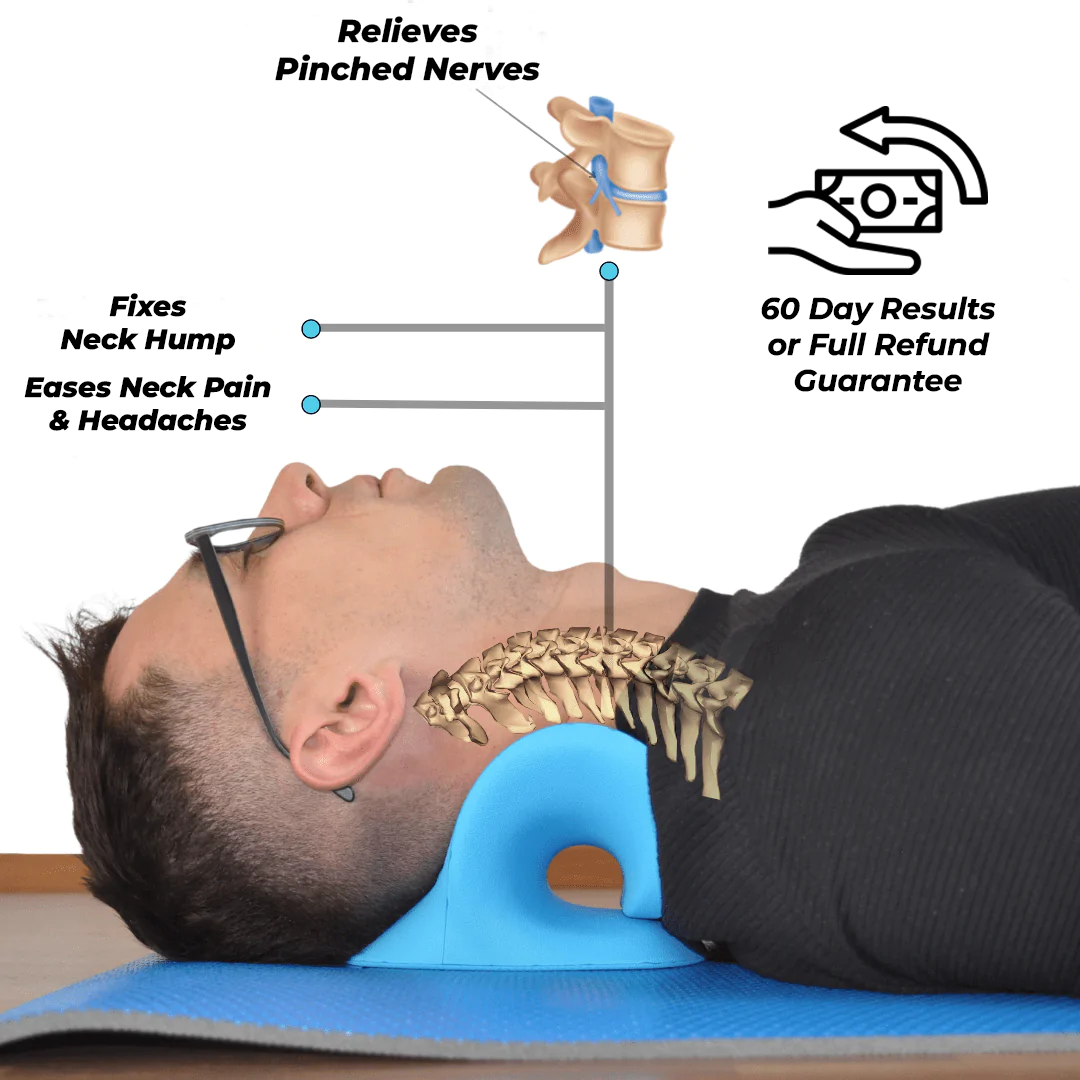Experience the Benefits of the Neck Cloud for Neck and Shoulder Relief
Experience the Benefits of the Neck Cloud for Neck and Shoulder Relief
Blog Article
The Influence of Anxiety on Neck Discomfort: Techniques for Lowering Tension and Discomfort
In today's busy world, it's clear that stress has come to be a prevalent consider the start and exacerbation of neck pain. The complex relationship between anxiety and muscular tissue tension typically leaves people looking for remedy for the discomfort that follows. By exploring targeted methods focused on decreasing stress and promoting relaxation, one can start to address the root triggers of neck discomfort and work in the direction of an extra balanced state of well-being. Join us on a journey to unwind the influence of stress on neck pain and uncover reliable means to reduce discomfort and improve total quality of life.
Comprehending Stress-Related Neck Pain
Stress-related neck discomfort can manifest as stress, rigidity, or discomfort in the neck and shoulder location. The link between stress and anxiety and neck pain lies in the body's physical reaction to stress, which can result in muscular tissue stress and rigidity in the neck muscle mass.

Identifying Common Stress Areas
One common tension location is the neck, where stress and anxiety commonly manifests physically. Stress migraines, tight neck muscle mass, and restricted array of movement are common signs and symptoms of stress-related neck tension. Being conscious of these typical stress areas can assist people acknowledge the physical indications of stress and anxiety and take steps to address them prior to they rise into chronic discomfort or pain.
Executing Relaxation Strategies
To properly handle stress-related tension in the body, applying leisure techniques is essential. Leisure methods are valuable devices for minimizing neck pain triggered by anxiety. Deep breathing exercises can aid soothe the mind and relax stressful muscle mass in the neck and shoulders (neck cloud). Practicing mindfulness reflection can also be beneficial in relieving stress and advertising relaxation. Modern muscle leisure, where you systematically strained and then kick back different muscular tissue teams, can launch built-up tension in the neck area. In addition, tasks like yoga and tai chi integrate both physical motion and leisure, making them efficient techniques for decreasing stress and anxiety and neck pain. Taking normal breaks throughout the day to stretch and unwind can stop muscular tissue tightness and stress from accumulating. By integrating these leisure strategies into your everyday regimen, you can help handle anxiety degrees, decrease tension in the neck, and relieve discomfort related to stress-induced neck discomfort.
Incorporating Self-Care Practices
Incorporating self-care practices is vital for preserving general health and managing stress-related neck discomfort effectively. Taking part in regular physical activity, such as gentle stretching exercises or yoga exercise, can aid relieve stress in the neck and shoulders. Exercising great position throughout the day and taking regular breaks from prolonged sitting or display time can additionally protect against pressure on the neck muscular tissues.
In addition, Recommended Site focusing on appropriate sleep and developing a constant sleep regimen can add dramatically to lowering anxiety levels and promoting leisure. Developing a soothing bedtime regimen, such as reviewing a book or taking a cozy bathroom, can help prepare the click here for more body and mind for relaxed sleep. Additionally, keeping a well balanced diet abundant in nutrients and staying hydrated can sustain general health and lower swelling that may exacerbate neck discomfort.
Including mindfulness methods, such as deep breathing workouts or reflection, can help take care of anxiety and promote leisure. Taking some time for oneself, engaging in leisure activities, and establishing boundaries to shield individual time are also vital elements of self-care that can add to lowering anxiety and relieving neck discomfort.
Looking For Professional Aid
Exactly how can people successfully address relentless neck pain that is impacting their every day life and health? Seeking specialist aid can be an important action in managing and alleviating neck discomfort. Consulting with healthcare specialists such as chiropractic doctors, physical specialists, or orthopedic specialists can give you could check here important understandings and individualized therapy plans. These experts can conduct detailed evaluations to detect the underlying sources of neck discomfort and advise suitable treatments.
Chiropractic doctors specialize in spine manipulation strategies to boost alignment and reduce tension in the neck location. Physical specialists offer targeted stretches and workouts to reinforce muscular tissues, enhance versatility, and boost overall neck function. Orthopedic professionals can supply innovative clinical treatments such as shots or surgical options for severe cases of neck discomfort.
Conclusion

Stress-related neck discomfort can manifest as stress, rigidity, or pain in the neck and shoulder location. The link in between stress and anxiety and neck discomfort exists in the body's physical action to anxiety, which can result in muscular tissue stress and tightness in the neck muscle mass. Tension headaches, stiff neck muscular tissues, and limited variety of movement are typical symptoms of stress-related neck tension. By incorporating these relaxation methods into your daily regimen, you can aid handle anxiety levels, reduce stress in the neck, and ease discomfort associated with stress-induced neck discomfort.

Report this page